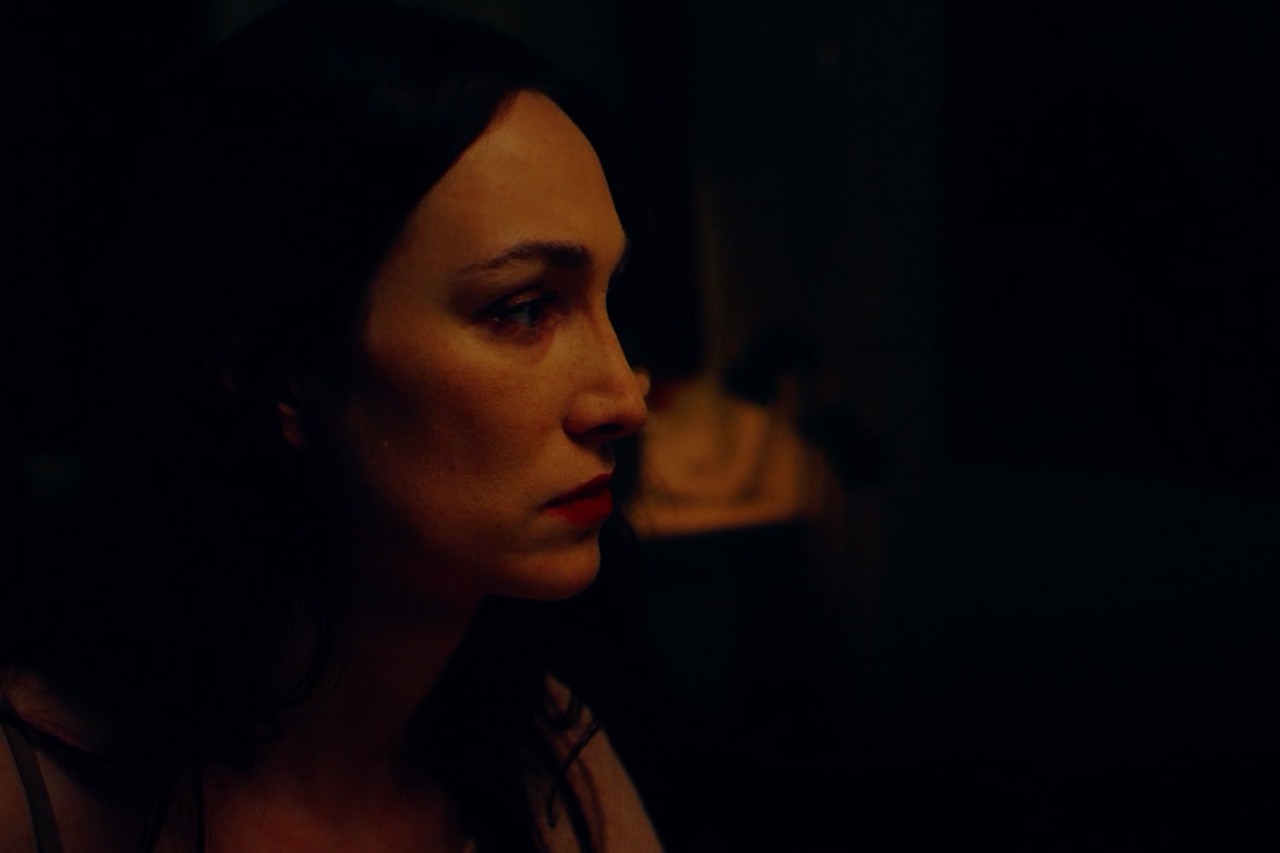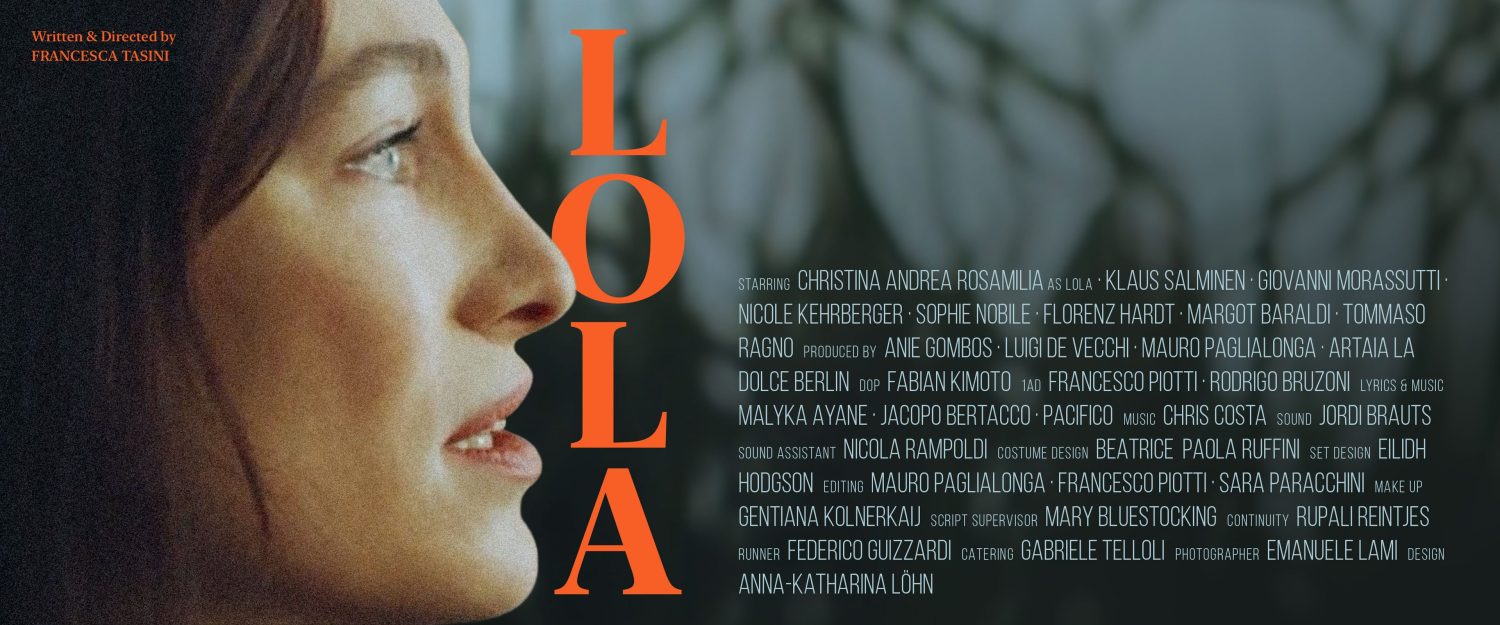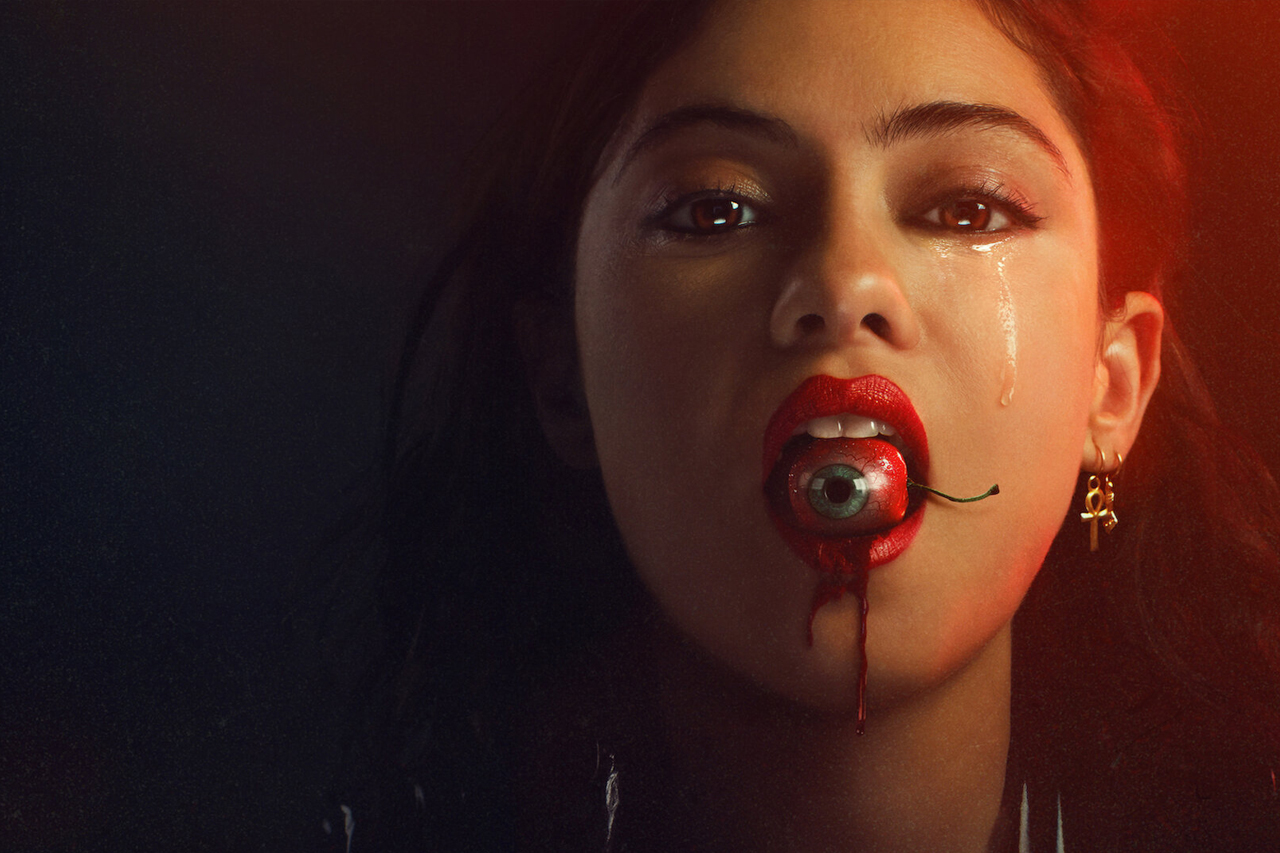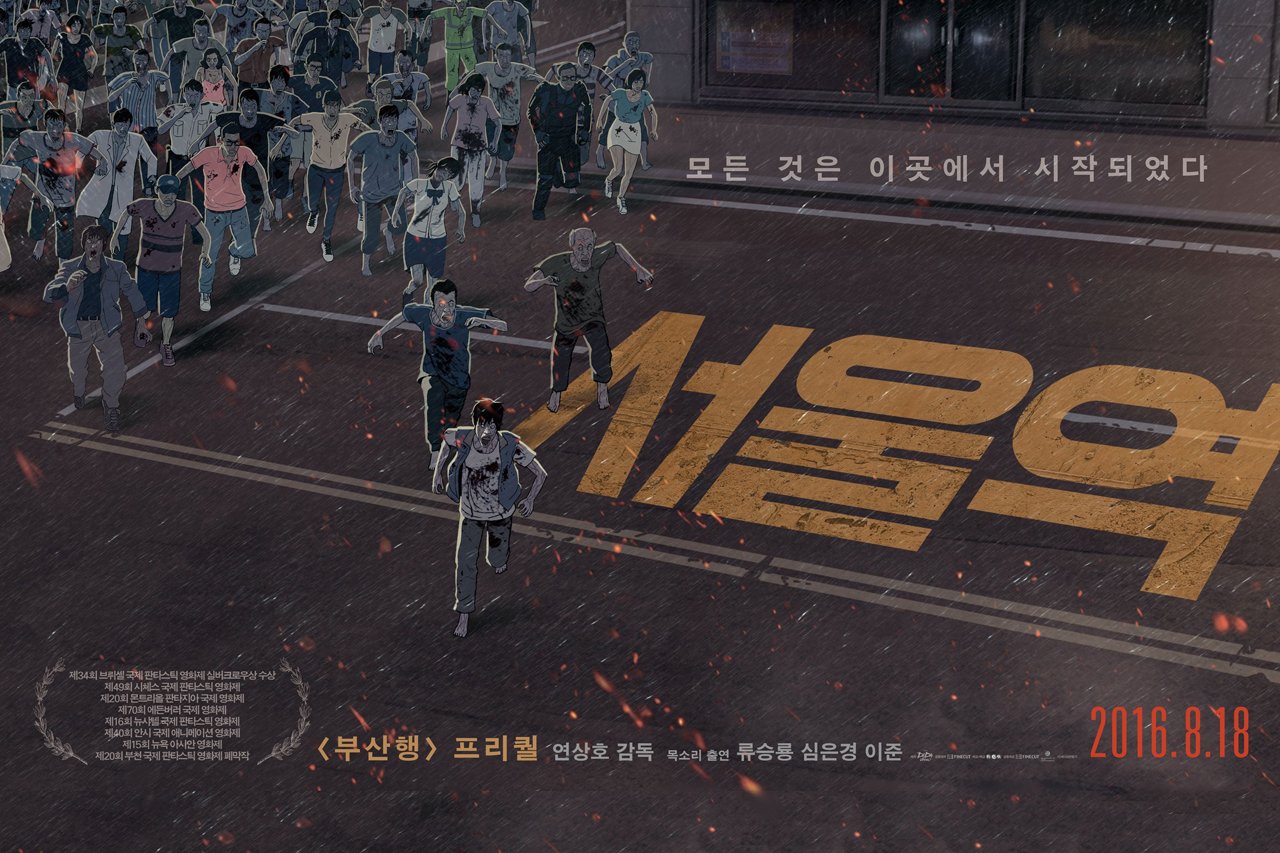Lola is a short movie by Francesca Tasini (Artaia-la dolce Berlin) and an Anie Gombos, Mauro Paglialonga and Luigi de Vecchi production. It boasts a versatile, enthusiastic cast full of talents, most notable of which are Christina Andrea Rosamilia in the titular role of Lola, Klaus Salminen (Johnathan), and Giovanni Morassutti as Damian, a character we won’t spoil you the particulars of, but that we’re sure you’ll end up loving. A wonderful example of teamwork that managed to make a little masterpiece that deals with a very delicate and at the same time oft-neglected subject. The short movie is currently competing in several film festivals.
Synopsis
Lola is a trans woman whose biggest wish in life is to have a child. But the road to achievement is full of obstacles.
Review
As mentioned in our introduction, Lola deals with a very specific and sensitive subject, namely that of adoption and specifically by Trans Folx.
Let’s make one thing clear: it is my personal feeling that I do not like labels. A woman is a woman, regardless of the body she was born with and vice versa, a man is a man even if he was born with a female body. Any homophobic, transphobic, bigoted, discriminatory and disrespectful comment will be deleted without notice. It seems absurd to have to make such a statement in 2020, but it is necessary to do so when we consider some of the things that circulate on the internet, especially on social media.
Having said that, let’s proceed.
Lola – Introspection of a complex character.
The protagonist, Lola, is a woman who wants a child. She wants to be able to love them and to become a mother. And yet, it seems that to her, this simple happiness, this joy, must be denied. And there’s no real explanation for that. Even though the social worker on her case wants to “help her”, it is clear by her own words that “It is really unusual to give a child to a transgender person.“
Truly a dagger to the heart.
In just a few words, not only Lola’s right to be a mother but also her identity as a woman are completely denied. To the world around her, however hard she tries, Lola is never fully recognised as a woman, but rather as a man who decided to become a woman.
Let’s try and take a minute to reflect on this. Because it is happening every day, and all around us. It happens like in the scene the short opens with in which we hear the social worker’s words. Because every time words like those are said, someone’s identity is being denied.
We see it in Lola’s eyes. They are eyes that just want to cry, but they maintain their identity. Christina Andrea Rosamilla manages to show every facet of this character with exceptional skill.
Lola, between longing for motherhood and wounds of the past
Another essential part of the story that we need to address is the loneliness that a character like Lola is often forced to deal with. A difficult choice that of becoming a parent when dealing with the condition (what a horrible word to describe it) she has to live with. Isolated, forced to choose between the man she loves and her life-long dream, Lola will have to gather every ounce of personal strength to keep fighting, while the wounds of her past keep reopening, keep hurting and burning. She keeps hearing her own childhood voice as a girl in a body that didn’t feel right, that didn’t reflect her identity and will never be able to give her what she longs for.
We live in a world full of Lolas who are looking for a chance of happiness. Lolas who shout because they’re trying to be heard. Lolas whose rights are constantly trampled and who, after all, are only trying to become parents, to get the chance of giving love to someone who needs it.
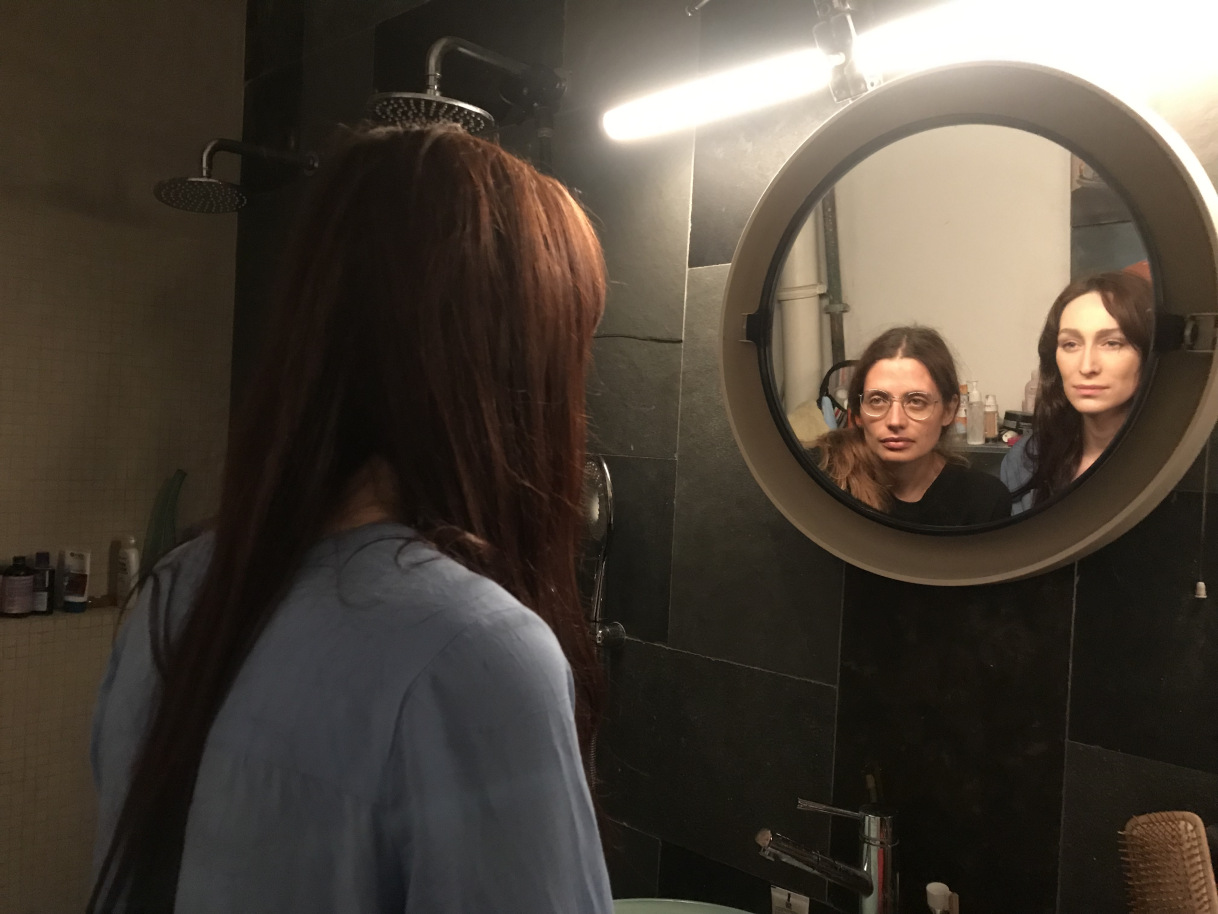
Photo by: Anie Gombos © LOLA A short film by Francesca Tasini
Will our Lola succeed? She will come face to face with a difficult choice like a sliver of light in an ocean of darkness, but will she manage to gather all her courage and cling to it?
Will two marginalised lives, two abandoned souls ever get the chance to find and save each other?
From screen to real-life: #IAmLola
Lola opens our eyes on the very important and sensitive theme of adoption (and fostering) by people in the LGBT+ community and, in this specific case, by transgender folks.
In Italy, adoption by same-sex couples is currently not allowed and only fostering is legal, as explained to me by Matteo Grimaldi, author of La Famiglia X. When it comes to other countries, adoption by same-sex couples is in some case allowed, at least in an official capacity. The process, however, remains full of obstacles and complexities, borderline hostile in a society that still isn’t capable to fully accept people as they are, as people with dreams, souls, and feelings. People who are entirely capable of love, often more eager than others for the exact reason that very often this right is denied to them.
The adoption process is generally a difficult one, but there is no denying that people in the LGBT+ community find even more hardships when it comes to it. Even in 2020, there’s still a big portion of people who just can’t accept that family is family regardless of its components.
The tag line we chose for this review is The right to love, and for good reason.
It’s because the core of the argument is exactly this. Are we really willing to deprive a child of a family rather than give a same-sex couple or a transgender person who might or might not have changed their body to align with their identity the possibility to adopt? It is so absurd that we have to spell it out. During my research, I have, in fact, discovered that if some countries allow same-sex couples to adopt, they still do not make any mention, at least on a legislative level, of transgender folks.
Where is the difference, one would ask? In my opinion, there isn’t one. People who want to give others love are able to do so regardless of their sexual orientation, or gender identity, or bodily appearance, or any other thing. Only adults see something wrong in it, children don’t. And any child who receives love and affection, doesn’t question the source it comes from. A child who has had to live alone and lonely only wants for someone who loves them, to find someone to hug when they’re scared or the world seems like a cruel place.
It’s for this reason that we want to dedicate this review to every Lola out there, to every Lola reading this, with the hope that one day they’ll be able to make their wishes come through, to become mothers or fathers.
Because we’re certain of it, you’ll be wonderful parents.
Credits and Acknowledgements
We want to thank, first and foremost, Francesca Tasini who let us see a preview of this film. We leave you with a link to the official site for Lola – A Short Film. Further thanks go to Matteo Grimaldi for the invaluable information he provided that was essential for the completion of this article.
Review by: KeiLeela Translation by: Chiara Tornincasa
